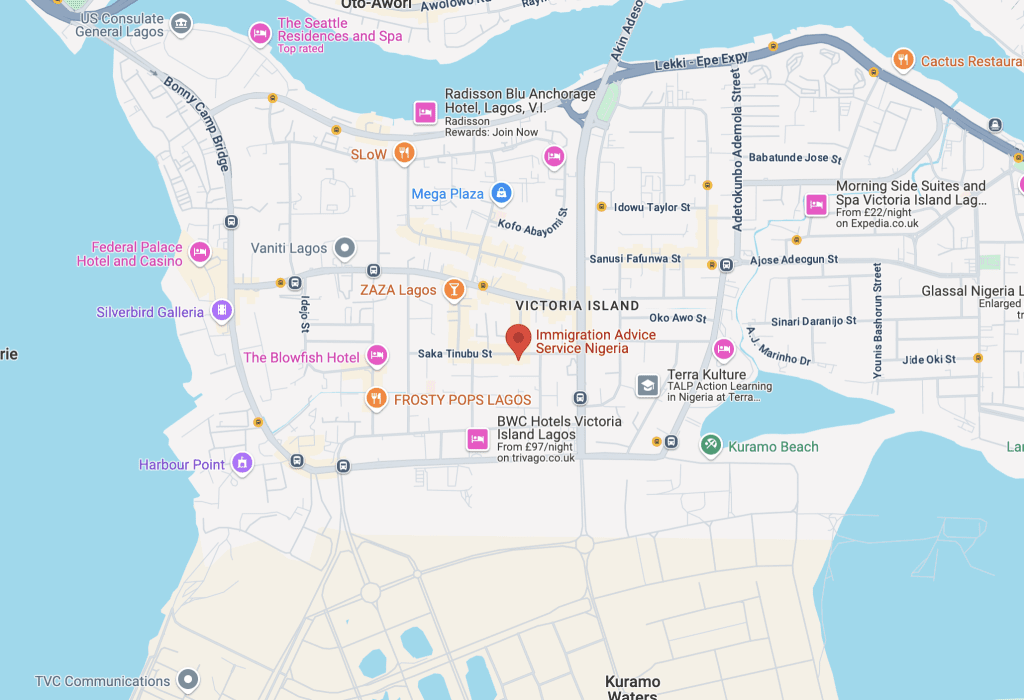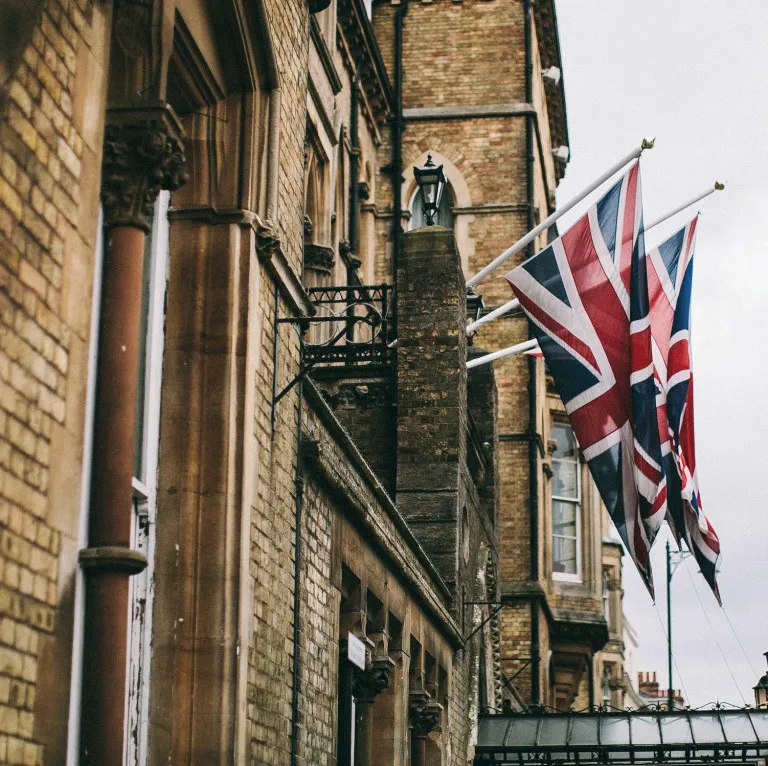Indefinite Leave to Remain for Nigerians
Indefinite leave to remain (ILR) or ‘settlement’ is a residence status that allows foreign nationals to permanently settle and stay in the UK.
Gaining permanent settlement in the UK is an exciting prospect for Nigerians who have been living and working in the UK. We can support you with your application. To apply for indefinite leave to remain, contact IAS today online or call us on +44 (0) 3316300929 in the UK or +2342013438882 in Nigeria.
Read our 1001 reviews
Request a call back from our immigration experts
Immigration Advice Service Nigeria
Benefits of Choosing IAS for Your Residency Application
IAS is the ideal choice for a range of UK residency applications, such as indefinite leave to remain, long residence and permanent settlement.
Our expert, capable lawyers can help address a wide range of issues and concerns, helping to make the process of applying for residency simple and hassle-free.
At IAS, we are committed to offering the highest-quality level of service available in the law sector. When getting in touch with us for help, you will:



Fully understand all the steps you need to take to succeed in your residency application.



Be fully prepped on all Home Office-required documents and evidence you will need to submit.



Receive regular check-ins from your personal immigration lawyer throughout the entire process.



Continue to receive support from your lawyer to address any requests from the Home Office.
Services we Provide
Want to Settle in the UK?
IAS is a team of expert immigration lawyers that can help you make the UK your permanent home. We can help you with your application process and with permanently settling you and your family in the UK.
Let us help you become a UK permanent resident.
Nigerian Emigration
For Nigerian emigration matters, please call +44 (0) 3316300929 or +2342013438882
Other Immigration and Emigration Matters
For immigration/emigration to/from other countries, please call:
US – +1 844 290 6312
Ireland – (+353) 061 518 025
UK – (+44) 333 4149244
What is Indefinite Leave to Remain?
Indefinite leave to remain, also known as ‘settlement’ or ‘permanent residency’, is a status that allows you to work, study and live in the UK without restriction. Settlement status allows you to travel in and out of the country easily, offers access to free NHS healthcare and state funds and government benefits. It also makes you eligible for citizenship and a British passport.
There are several routes you can take to gaining ILR status in the UK. Your personal, working and studying circumstances all contribute to your eligibility, as well as the type of visa that you hold.
With most visas, Nigerians can apply for indefinite leave to remain after they have lived in the UK for five years, though under certain circumstances and visas, you may be able to apply after two or three years.
What are the Eligibility Criteria for Indefinite Leave to Remain?
The eligibility criteria will differ slightly depending on which visa you are using to apply with, how long you have lived in the UK, and whether you can apply through heritage or based on your spouse if they are a UK citizen.
For most applicants, you must meet the following criteria:
- Have lived in the UK for 5 years, and not have been out of the country for longer than 180 days in any 12 month period
- Have no criminal record and have abided by UK immigration laws for the duration of your time spent in the UK
- Take and pass the Life in the UK test
- Can prove that you meet the B1 level of English as set out by the Common European Framework of Languages
- Meet certain salary or investment threshold requirements, depending on your visa type.
English Requirements
Applicants must prove that they can read, write, speak and understand the English language at least at a level B1 on the Common European Framework of Reference for Languages (CEFR) scale.
You can prove your English knowledge by providing evidence of the following:
- A pass in the Secure English Language Test (SELT) from an approved provider
- A GCSE, A level, Scottish National Qualification level 4 or 5, Scottish Higher or Advanced Higher in English, gained during time you spent in a UK school
- A degree-level academic qualification that was taught in English – you must apply for a certificate from Ecctis (formerly UK NARIC) if you studied in Nigeria or another foreign country.


Applicants Who Don’t Need to Apply
Some Nigerians might not need to apply for ILR. Examples of applicants who may be eligible for automatic naturalisation include:
- Applicants who meet the eligibility criteria for citizenship by descent (or other form of automatic citizenship)
- Child dependents of a British citizen or person with settled status
- An adult dependent who relies on the support of family member with British citizenship or ILR status
- Refugees who have been resettled in the UK through the Gateway Protection Program.
What Visa Do I Need to Apply for ILR?
Your eligibility for settlement not only depends on the amount of time you’ve spent in the UK, but depends on the type of visa you hold.
Five Year Route
In most cases, you will need to apply for ILR after five years of living in the UK on one of the following types of visas:
- Long-term work visas, such as Minister of Religion visa, International Sportsperson visa or Skilled Worker visas
- Family visas, such as the Spouse visa, Parent visa, Unmarried partner visa, or Child visa
- Tier 5 International Agreement visa
- UK Ancestry Visa.
10 Year Route
For Nigerians who have worked and lived in the UK for ten years or longer, you can apply for the long-residence ILR route.
You will be able to combine the different visas you may have held during that time, and will have to prove that you have not left the country for longer than 180 days for each of the ten years, or 540 days over the course of 10 years.
If you wish to apply for long-residence, you must meet the following criteria:
- Has had lawful continuous residence in the UK for ten years or more
- Must be a lawful resident with no criminal convictions and has not breached any immigration laws except for an instance where they overstayed a visa for 28 days or less before 24 November 2016, but were still granted leave
- You’re not considered a threat to British society
- Must be able to prove knowledge of English, Welsh or Scottish Gaelic and British life and culture.
Accelerated ILR – After 2 or 3 Years
Some visas may offer the opportunity for you to apply for indefinite leave to remain after only living in the UK for two to three years. These are generally only applicable to UK business owners and high net-worth individuals who are investing significantly into the UK markets.
You may be eligible and can apply for ILR after three years if you:
- Hold the Innovator Founder visa or Entrepreneur Visa, and
- Have created at least 10 new full-time job opportunities, or your business has a turnover of at least £5 million
Global Talent visa holders may be able to apply after three years if they have been endorsed.
If you have lived in the UK for the relevant number of years but have had two or more different visas during that time, you may be able to combine these visas to make up the five years. This is a complicated process, and therefore we recommend that you seek professional support from immigration experts. IAS can help. Contact us today online or call us on +44 (0) 3316300929 in the UK or on +2342013438882 in Nigeria.


What Documents Do I Need to Apply for ILR?
In general, to apply for ILR you will require the following documents:
- A valid passport or other valid form of travel identification
- A biometric residence permit
- Two valid and recent passport photos
- Police registration certificate
- Any other passports or travel documents that you have held during the period of time you have lived in the UK, including expired ones
- Translated documents into English or Welsh, if applicable
- Marriage or civil partner certificates, divorce certificates, or birth certificates if you are applying for ILR on a family or partner visa
- Proof of your B1 language abilities
- Proof of a pass in the Life in the UK test
- Financial information depending on your visa type, and proof that you have a permanent place of residence.
How Do I Get a Biometric Residence Permit?
You will be required to have a biometric residence permit (BRP). A BRP costs £161.
The Biometric Residence Permit is part of the ILR application. When you apply for indefinite leave to remain, in order to collect your biometric data you will be asked to make an appointment with UKVCAS, or with a visa application centre if you are not in the UK.
You will need to provide biometric data of your face and your fingerprints. If you do not have any fingers, this will be noted on your application and just biometric data of your face will be taken.
BRP for Children
If your child is under 16, they will need to be accompanied by someone over the age of 18 who is legally responsible for them. Children under 5 do not need to provide fingerprint data.
How Do I Apply for Indefinite Leave to Remain?
The application process is lengthy, and will require you to ensure you have all the appropriate documentation and evidence.
In general, you must:
- Complete the ILR application form online, or in person if you have mitigating circumstances
- Provide biometric data for your Biometric Residence Permit
- Upload relevant documents online
- Attend an interview, if required
Applying for indefinite leave to remain is complicated. You can apply with IAS to be sure that the procedure runs as smoothly as possible. Contact us today online or call us on +44 (0) 3316300929 in the UK or on +2342013438882 in Nigeria. You may also visit our office in Lagos if you are currently in Nigeria.
How Much Does ILR Cost?
The current application fee for indefinite leave to remain is £3,029 per applicant.
| Service | Fee (GBP) |
|---|---|
| Indefinite Leave to Remain Application | £3,029 per applicant |
| Biometric Residence Permit | £161 per applicant |
| Life in the UK test | £50 per applicant |
You may also need to pay for a relevant B1 English proficiency test, for document translations, travel, and legal support.
How Long Does it Take to Apply for ILR?
In general, you will be given a decision on your application for indefinite leave to remain within 6 months. Please be mindful of this timeframe when you are making arrangements for travel and settlement in the UK.
Priority Services
If you wish to receive a decision on your application quickly, you can pay for priority services:
- Priority Service Centre cost (response within 5 working days): additional £500 per applicant
- Super Priority Service Centre cost (response within 1 working day): additional £1000 per applicant


How Can IAS Help?
Gaining indefinite leave to remain in the United Kingdom is very exciting for many Nigerians who wish to become permanent residents in the UK. It offers the prospects of gaining citizenship after one year and being able to apply for a British passport, offering great travel, living, working, and business opportunities for you and your family. It allows you to feel fully settled and at home in the UK.
We understand that applying for ILR can be a complicated process, particularly if you have family to factor in. It can also be difficult if you have had criminal convictions or if you need to combine several visas. If you have already applied for ILR but have been refused, this can be extremely disheartening. But hope is not lost – that’s why IAS is here.
We have a team of expert immigration lawyers with up-to-date knowledge on how you can gain indefinite leave to remain status and get settled in the UK. Contact us today online or call us on +44 (0) 3316300929 in the UK or on +2342013438882 in Nigeria. You may also visit our office in Lagos if you are currently in Nigeria.
We are here to help.
Table of Contents
Table of Contents will appear here.Legal Disclaimer
The information provided is for general informational purposes only and does not constitute legal advice. While we make every effort to ensure accuracy, the law may change, and the information may not reflect the most current legal developments. No warranty is given regarding the accuracy or completeness of the information, and we do not accept liability in such cases. We recommend consulting with a qualified lawyer at Immigration Advice Service before making any decisions based on the content provided.
Frequently Asked Questions
Short term student visas, seasonal worker visas, or short term entry clearance immigration categories will not be considered for ILR. Any time spent on immigration bail will also not be factored in.
If your application has been refused, you will receive a refusal letter. The letter should be clear about the reasons for your application refusal.
Most often, the reasons for refusal are that rectifiable mistakes have been made on your application. If this is the case, you can resubmit your application. If you were not eligible for ILR, then this should be clear in the refusal letter and details for whether or not you can re-apply at a later date will be provided.
If you believe that your application was unfairly rejected, you can challenge the decision via an administrative review or, in certain cases, an official legal appeal against the Home Office’s decision on your application. If you wish to launch an appeal, you will require legal support – IAS can help. Contact us today online or call us on +44 (0) 3316300929 in the UK or on +2342013438882 in Nigeria.
Though in some circumstances you may be okay to travel within the Common Travel Area (CTA), it is highly recommended that you remain in the UK and do not travel during the application process period or whilst you wait for a response from the Home Office on your application decision. If you travel abroad, your application will be withdrawn.


What our clients are saying
How our UK Immigration Lawyers can help
At the Immigration Advice Service our lawyers specialise in a wide range of UK visas, nationality and asylum applications and have represented clients in various successful complex and high-profile cases.





















